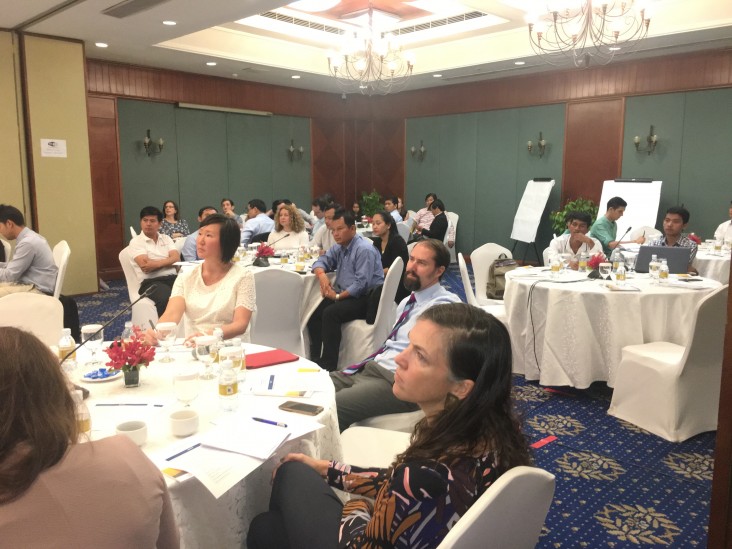Speeches Shim

(as prepared for delivery)
Good morning.
Thank you for joining us today for the Digital Agriculture Forum, hosted by the Digital Development for Feed the Future team at USAID.
I am grateful that you have prioritized this event in your busy schedules. I am confident that we will benefit from your experiences and we will learn together more about how we can use digital tools and strategies in your organizations and programs.
We are living in a world in which information and communication technologies are growing at unprecedented rates. When I applied for a job with USAID (in this century!) I was told to send in my application by fax. Today that seems as antiquated as a telegram. Today, I’m sure there is an app for that. Today we have the world in our pockets, through our smartphones, the satellite-enabled GPS tracking of commodities in the market, and the latest apps that are making it easier for us to manage our money, monitor our health, and have access to vital information. These tools are paving the way for a new set of innovations aimed at addressing critical development challenges. This is true for all sectors, including agriculture. It is an exciting time for sure.
In the past, investing in digital resources was considered separate from development. But the foundations of the digital economy are critical to the success of all development outcomes and should be considered a part of how we meet our development objectives.
So why are we here today?
First, we hope that today’s event serves as a venue for you to share your experiences using digital tools and strategies in your Feed the Future activities. What approaches are working well for you? What constraints are you finding? How can we work together to address these constraints? Technology is only good if it is actually used and serves a need. Your input is critical in refining and adapting the tools we have.
Second, we will also provide you with evidence demonstrating the impact of digital tools and approaches in agriculture programming. There is a strong, existing evidence base around using digital tools in agriculture, but there are pieces missing. We hope that through your conversations today, you’ll be able to identify new evidence that can help us fill those gaps.
There are a number of ways that digital opportunities can support our agricultural goals. Let me share a few.
Building on the incredible growth of mobile penetration in key farming countries around the world, digital financial services can help meet the $440 billion estimated shortfall in serving this population's demand for finance.
Real-time data capture and analysis can help solve top challenges in agriculture ranging from tracking pests and diseases to providing local, up-to-date weather information.
Geospatial and data analytics provide us with new opportunities to map and understand the communities where we are working.
Providing agricultural extension information over digital channels can cost-effectively address the huge information gaps that smallholder farmers are continually facing.
These are just a few solutions but I know you will find more.
We recognize that digital technologies can accelerate the achievement of our development objectives in agriculture as well as in our other portfolios, including health and education. At the same time, we recognize that many challenges still exist to fully realizing these opportunities, especially in rural areas, and that the stakeholders in this room are critical to addressing these challenges. We look forward to working together with all of you today, and in the future, to better leverage digital tools and approaches in support of our Feed the Future goals.
Finally, I would also like to take this opportunity to announce a new research grants opportunity called PEER – Partnerships for Enhanced Research. This program funds scientists and engineers to build research partnerships between Cambodian and U.S. researchers to use evidence for policy formulation for better development outcomes. Feel free to approach any of our staff for more information, for the first time we will provide small $30,000 catalytic awards in Cambodia, and I’m sure many of you would be or know of great candidates.
We look forward to your robust participation today and continued partnership. Have a great discussion.
Thank you.
Related Speeches
- Remarks by Menglim Kim, Project Management Specialist, USAID/Cambodia, USAID Greening Prey Lang Final Youth Debate
- Remarks by Ms. Hanh Nguyen, Deputy Mission Director USAID/Cambodia, Health Professional Councils’ Strategic Planning Orientation Workshop
- Remarks by John Eyres, Director, Office of Public Health and Education, USAID/Cambodia, Dissemination Workshop of the Fifth National Strategic Plan for a Comprehensive & Multi-sectoral Response to HIV & AIDS in Cambodia

Comment
Make a general inquiry or suggest an improvement.